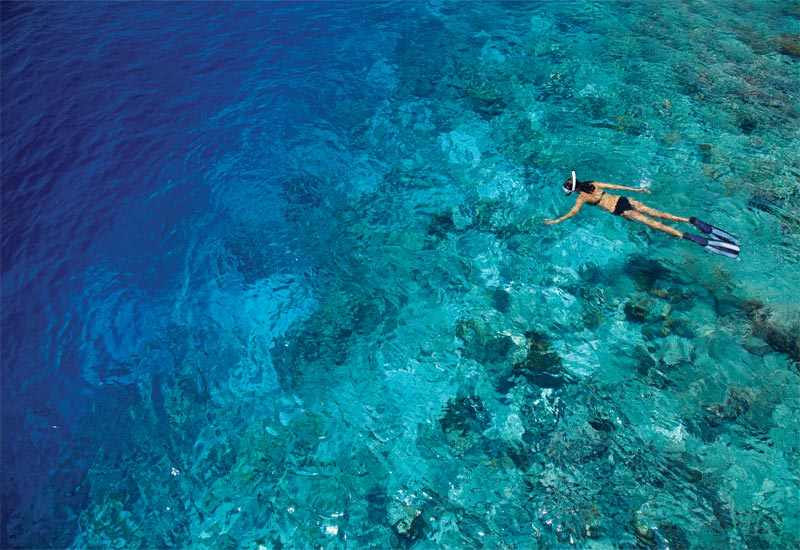“While Europe is obviously more sensitive and unstable right now, Korea and China are growing in activity, in terms of outbound, so there is definitely still lots of room.
[We target] Europe, Eastern Europe, CIS, US, the biggest potential is China, as for everywhere else.
In Korea, there are lots of honeymooners, a younger mobile generation.
“The Gulf is somewhat limited, but there is of course [demand],” he continues. “There is no market that we would be disregarding, we are penetrating into a very thin layer of the community in each of these markets, it’s not the volume as such, it’s more the qualified, focused profile that identifies themselves.”
To target the Middle East, Dusit has opened a regional sales office in Dubai, with two sales managers actively targeting the tour operators and airlines, looking to bring both GCC nationals and expatriate residents to the property.

| Advertisement |
Of the competition in Maldives, Kobos adds: “With the other hotels here, all are unique, they have their own loyal customers and differentiation, which ones are better I can’t say.
“We are one of the larger ones as a resort and for first-time visitors larger islands are better, once you’ve been to Maldives then you can shift to something smaller. If you are a diver, you wil probably focus onto other aspects than the size – the resort and what you can find underneath, then the brand and the price — that’s how it works.
“We want to position ourselves with our neighbours, Four Seasons down the road, next to Anantara, another Thai company; we have good competition and that is all you need,” says Kobos.
The strong demand obviously justifies strong rates, he continues, with Dusit Thani Maldives currently offering stays from $563 per night in a beach villa to $975 for an ocean villa and up to $3075 for a Beach Residence — these rates include a 25% discount and breakfast as part of the Summer Splash-out promotion from May 1 to August 31.
This makes return on investment much faster than with city hotels, says Kobos, with returns “30-40% shorter than in the city”.
Global expansion
While the opening of Dusit Thani Maldives was a milestone in itself, for Dusit, it also marks a new era of expansion for the family-owned public company.
Maldives was the fourth country Dusit has entered outside of Thailand — the others being Egypt, Philippines and UAE — but over the next few years, it is expanding into several new territories, including China, India, US and Saudi Arabia.
In India, Dusit has six projects through a joint venture with Bird Group, with Dusit Devarana New Delhi — a 50-room boutique spa resort — opening this year.
Other hotels announced for India include Dusit Devarana Hotel Jaipur, Dusit Devarana Rishikesh, Dusit Thani Goa, as well as Dusit D2 New Delhi, with the D2 brand being the company’s “snappy, hip, younger, colourful, easy and relaxed” brand according to Kobos.
It is this brand that the company is also taking to California, with the Dusit D2 Pasadena signed, and there are a couple of D2 hotels expected in China too, along with the luxury Dusit Thani Hainan and Dusit Devarana Hainan.
In the Middle East, the focus remains on the core Dusit Thani brand, which launched in Dubai 10 years ago and is now planned for Abu Dhabi, believed to be opening this year, Jeddah and Bahrain.
Meanwhile, in Dubai, the hotel is undergoing a major guest room refurbishment expected to be completed by the end of 2012.
“Altogether in total we have about 13 projects [worldwide],” says Kobos.
“Bahrain is one of them but Bahrain is not really under anyone’s control, the island is just on hold.
“It’s a very ambitious project, very unique, focusing on medical tourism, the whole concept it really makes good sense and it’s interesting, but until the political situation settles down it doesn’t make much sense [to develop it].
“Jeddah is going forward, it’s been drawn up, partially built, so with that of course things are moving forward,” Kobos adds.
The new flags are all part of the company’s primary focus for 2012 — the development and expansion of Dusit brands into international arenas, as announced by the group’s CEO in March.
Dusit International’s asset in this will be its niche as a smaller operator, says Kobos.
“Our little niche is we are a small company, more of a family environment, so the partnerships have different values, not just a balance sheet and what comes to the bank — it’s really about the relationships and the value of the culture, philosophies, operating and owning,” he says.
In addition, everything the brand represents links back into its inherent Thai-ness, with the experience offered at Dusit overseas aiming to meld these Thai qualities with the culture of the location — just as has been achieved in the Maldives, where the blend of Maldivian and Thai hospitality works very well.
After all, I doubt there are many places where you can do a Thai cooking class and have a traditional Maldivian BBQ in one day?
Article continues on next page ...









 Search our database of more than 2,700 industry companies
Search our database of more than 2,700 industry companies









